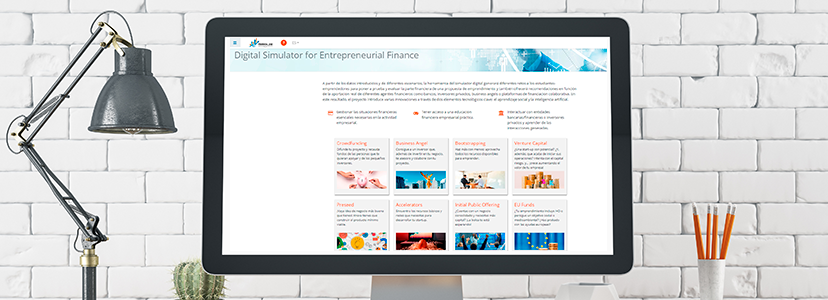The Iberoamerican University Foundation (FUNIBER) participated on July 11 and 12 in Halle (Germany) in the last transnational meeting of the Erasmus Plus FINANCEn_LAB project, where details were finalized regarding the virtual simulator, the final report, and the sustainability plan.
In the project, led by FUNIBER, the Alexandru Ioan Cuza” University of Iași (UAIC) of Romania, the Jan Kochanowski University (UJK) from Poland, the company TVW GmbH of Germany, as well as the University of Valladolid (UVa), and the Center for Research and Industrial Technology of Cantabria (CITICAN) of Spain participate.
During the meeting, the difficulties encountered by the partners during the development of the different case studies included in the platform were discussed, and recommendations for improvement were offered.
The attendees also evaluated the contribution received from different external professionals. Following a meeting with a representative of the Polish Ministry of Education, who has extensive experience in entrepreneurship programs, the UJK suggested the development of a module or program to train teachers and instructors who will accompany users in the simulator. Inna Alexeeva, FUNIBER Project Manager, received positive feedback from several banking specialists who were able to navigate through the simulator cases and evaluate the project proposal.
“The simulator is going to offer students of any career the possibility to understand how non-traditional sources of financing work today, and how it could help, especially entrepreneurs,” Alexeeva remarked. The simulator covers different case studies, such as Preseed, Business Angels, or Bootstrapping, among others.
José Breñosa, researcher at CITICAN, described the prototype as a success, which has “an intuitive interface, very close to a real product (a professional platform)” and also highlighted the successful inclusion of gamification elements and active teaching methodologies in the platform.
A draft of the latest intellectual product of the project, a report on recommendations for corporate finance stakeholders and corporate policy makers, was also shown during the meeting.
The main objective of this report is for trainers to adapt their business education programs based on the results and knowledge generated in the development of the virtual simulator. This will contribute to corporate policies related to education and, more specifically, to financial education. Financial agents will thus be able to rethink their approach and design an offer tailored to entrepreneurs in order to reach a better mutual understanding and even provide them with new financial services. This will also help to bring the financial and educational sectors closer together.
In addition, with a view to the sustainability of the project, the partners discussed alternatives to promote the results and impacts after the end of the project. Among them, different options were considered: to use the simulator as a complementary tool in subjects related to the area, to develop a space on the web to obtain feedback from users, and to present the simulator in public administration and universities.
Those interested in testing their financial knowledge and learning more about the digital platforms that are being implemented can obtain more information at the website of the project. The simulator is available at the following link.

This project has been funded with support from the European Commission. This publication only reflects the views of the author, and the Commission cannot be held responsible for any use which may be made of the information contained therein.
